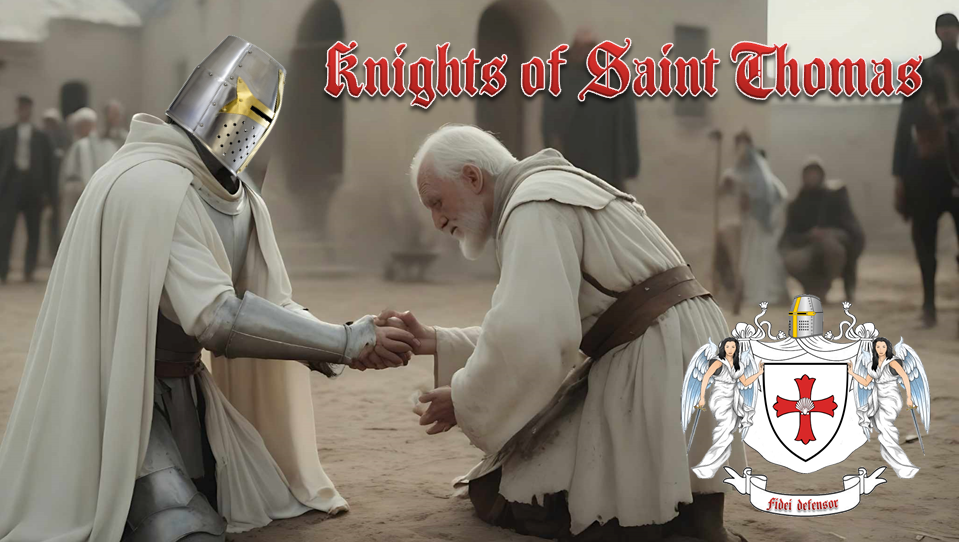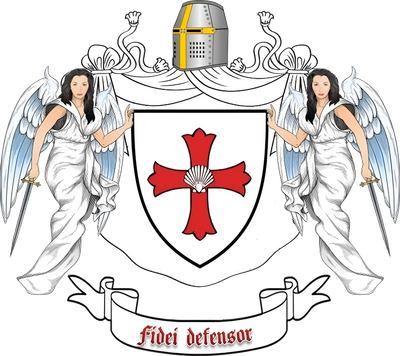Upholding Chivalric Values in the Modern World

In an age dominated by rapid technological advancement, globalization, and shifting societal norms, the concept of chivalry might seem antiquated, perhaps even irrelevant. However, the values embedded in chivalric ideals - such as honour, integrity, respect, and service - are as vital today as they were in the past. These principles, rooted in the medieval code of conduct for knights, offer guidance on how individuals can behave ethically, promote social harmony, and foster a sense of responsibility in our increasingly complex world. We will show how that maintaining chivalric values is essential in contemporary society, as they help cultivate character, guide moral behaviour, and preserve human dignity in the face of modern challenges.
Chivalry originated in the Middle Ages as a code of conduct for knights, who were expected to be paragons of honour, bravery, and courtesy. They were bound by a sense of duty to protect the weak, uphold justice, and serve their liege lord. Over time, these values evolved beyond the battlefield, influencing broader social and moral frameworks. Chivalry was closely associated with ideals such as loyalty, self-sacrifice, and respect for others, particularly towards women and those less fortunate.
In today’s world, though the feudal system and medieval warfare are long gone, the ethical foundations of chivalry remain relevant. Honour, respect, and kindness are timeless virtues, and integrating them into modern life can help counterbalance the individualism, materialism, and moral relativism that often dominate contemporary culture.
One of the most direct ways chivalric values manifest in today’s society is through personal conduct. Honour and integrity, for instance, are core elements of chivalry and remain essential for building trust and maintaining healthy relationships, whether personal or professional. A person of honour values honesty and upholds their commitments, even when it is inconvenient or difficult to do so. In a world where social media and instant communication often foster superficial interactions, these qualities become even more important.
Respect and courtesy, which are central to the chivalric tradition, also remain highly relevant. In the workplace, mutual respect leads to a healthier and more productive environment, while in broader society, it helps reduce conflict and promotes civility. At a time when polarisation and hostility seem to permeate public discourse, the need for respect in conversation, debate, and disagreement cannot be overstated. By embracing chivalric ideals, individuals can help foster a culture where differences are approached with empathy and understanding, rather than aggression or disdain.
Another significant reason why chivalric values are important today lies in their potential to inspire social justice and altruism. The medieval knight was bound by a duty to protect the weak and defend those unable to defend themselves. This sense of duty translates, in modern terms, to the responsibility individuals and institutions have to address inequality, support the marginalised, and work for the common good. Issues such as poverty, discrimination, and environmental degradation require collective efforts and a willingness to act selflessly - values deeply embedded in the chivalric code.
Furthermore, the principle of service, central to the knightly ethos, can inspire acts of charity, volunteerism, and community engagement. Chivalric service was not just about fighting for a cause; it involved humility, putting others before oneself, and seeking justice. In a world increasingly concerned with personal gain and competition, such values serve as a necessary counterbalance, encouraging us to contribute positively to society.
In today’s digital age, where interactions are often anonymous and impersonal, the principles of chivalry can also help preserve human dignity. Online platforms have created new arenas for interaction but have also facilitated behaviour that undermines respect, such as cyberbullying, harassment, and misinformation. By adhering to the values of honour and courtesy, we can ensure that our digital presence is constructive and respectful. This means not only refraining from harmful actions but also actively promoting positive, respectful discourse.
Chivalry also teaches the importance of humility and recognising the inherent worth of others. This is especially pertinent in today’s hyper-connected world, where personal success is often measured by superficial markers such as fame, wealth, or social media influence. The chivalric notion of honour reminds us that true dignity comes from how we treat others, rather than how we are perceived by them.
In conclusion, while the age of knights and castles may be long past, the values of chivalry remain profoundly important in today’s world. Honour, respect, courtesy, and service are not outdated relics of a bygone era but timeless virtues that help guide moral behaviour and promote social harmony. In an increasingly complex and, at times, divided society, the preservation and practice of these values are essential for fostering empathy, justice, and dignity. Chivalric values offer a moral compass, helping individuals navigate the challenges of modern life while remaining true to principles that elevate both the individual and the collective. Therefore, upholding these values is not only relevant but necessary for building a more compassionate, fair, and respectful society.
